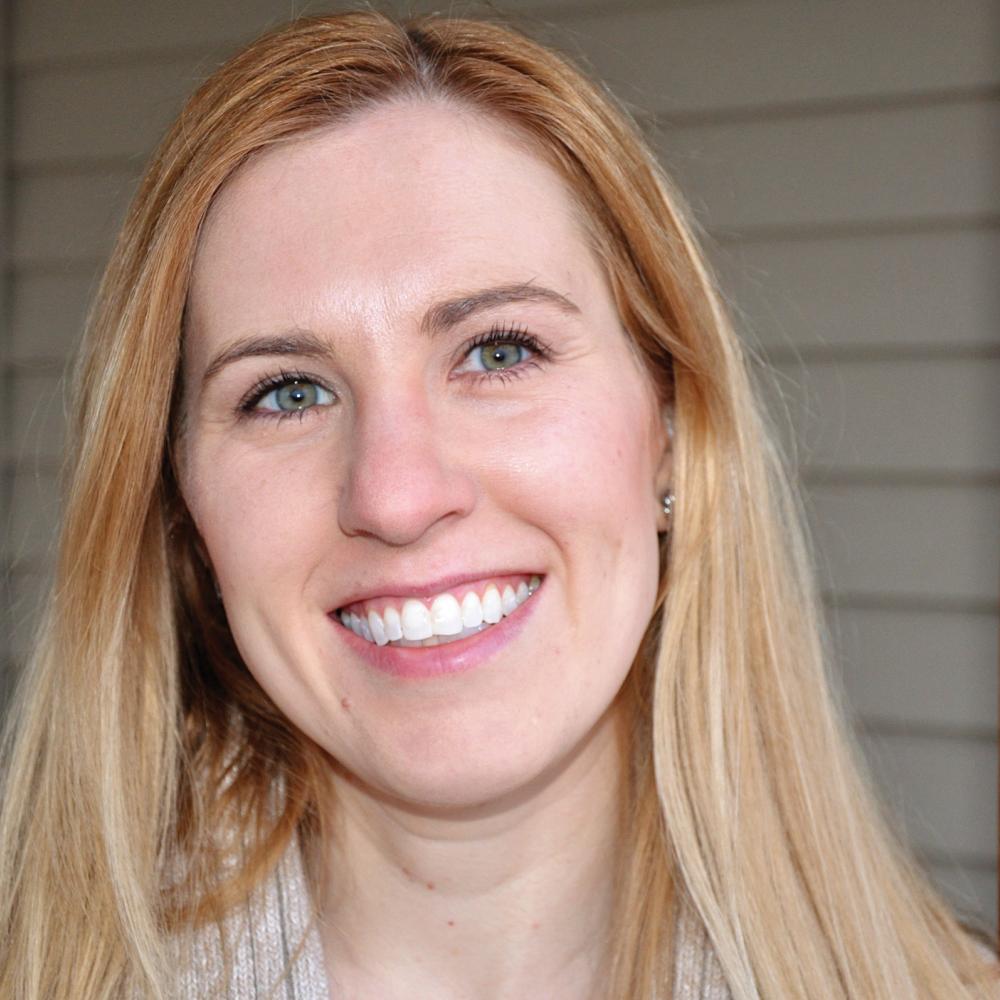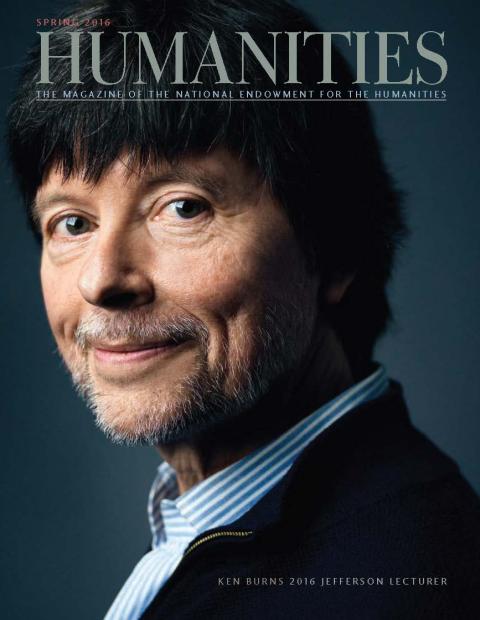As one of five children growing up in the rural community of Center, North Dakota, Brenna Daugherty Gerhardt spent many hours at the town’s small library, discovering books. It was there, among those volumes, that she developed her devotion to lifelong learning. She has spent the years since honing that interest, both for her own pleasure and for the benefit of all the North Dakotans she can reach.
After graduating magna cum laude from Minnesota’s Concordia College with a major in religion and minors in classical studies and psychology, Gerhardt turned her sights toward Cambridge, Massachusetts. She received her master’s degree in theological studies from Harvard’s Divinity School in 2005 and headed home to the heartland, where she was hired as the program and resource coordinator for the North Dakota Humanities Council.
“They took a chance on me,” she reflects, with a smile. “I was super young, but super passionate.” Since July 2008, Gerhardt has been executive director of the council, where she focuses on encouraging thoughtful debate in the state’s communities. It’s a responsibility—and a challenge—that she relishes.
North Dakota’s council supports an array of institutions and individuals, focusing particularly on galvanizing creative collaborations between public and private partnerships. In a state whose university system includes 11 campuses, an agriculturally focused economy in the east, and an energy-based economy in the west, the task can be daunting.
“We’ve stopped teaching [humanities] in our schools. It’s the study of being human and everything that humans have struggled for, achieved, endured throughout time and place. It’s our human story and one we need to teach our kids and adults,” says Gerhardt. “Too often, we’re too siloed, and the job of the council is to ask people, How do you live an amazing life in which you never stop learning, growing, and engaging with your community?”
The North Dakota Humanities Council saw a need to create dialog and to get people actively thinking in these terms. It created GameChanger, an annual ideas festival that Gerhardt affectionately calls their “passion project.” Each year, the council identifies an idea, event, or issue that’s changing the face of the world. It invites individuals close to the action to come for a one-day event in September to share their ideas on how to manage these challenges. Leading up to the event, the council proposes and suggests relevant authors, books, and plays for participants to explore prior to convening. Teachers, students, community boards, politicians, and business leaders are just some of the attendees: All are welcome.
In its inaugural year, 2014, GameChanger focused on the Middle East. Last year, the theme was technology, and in 2016 it is the 100-year anniversary of the Pulitzer Prize. At the event, local journalists will interview Pulitzer Prize-winning journalists and historians about their work to facilitate discussion with the audience about the role of a free press and historically significant events.
“We want to celebrate journalists and historians and the importance of high-caliber journalism and history and the American public’s access to that,” explains Gerhardt. “The goal is that everyone who comes will have their thinking challenged . . . we’re not saying we have the answers; we are just starting the conversation.”
Events like GameChanger underscore the power and possibility of community members, according to Gerhardt. They also highlight the importance of bringing smaller, more isolated communities into the fold. The state’s recent oil boom brought an influx of new residents with it. For a state that is unaccustomed to population growth, the changing demographics have many North Dakotans considering how to welcome and accommodate newcomers.
“With all of the rapid change in western North Dakota, there’s been a lot of attention on infrastructure challenges but not a lot on core questions, like What does community look like?” says Gerhardt. “We need to be asking about the value of human connection, and what happens if it breaks down . . . because if you don’t have community, that’s not a positive thing.”
Gerhardt acknowledges that these are fast-paced and noisy times and not the best circumstances for deep, life-changing reflection. Yet she is emphatically hopeful. “We need to ask ourselves, What kind of life do I want to live?” Gerhardt says. “If we can do that, the work will come.”


